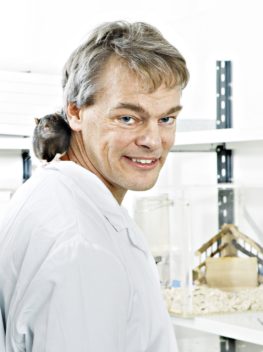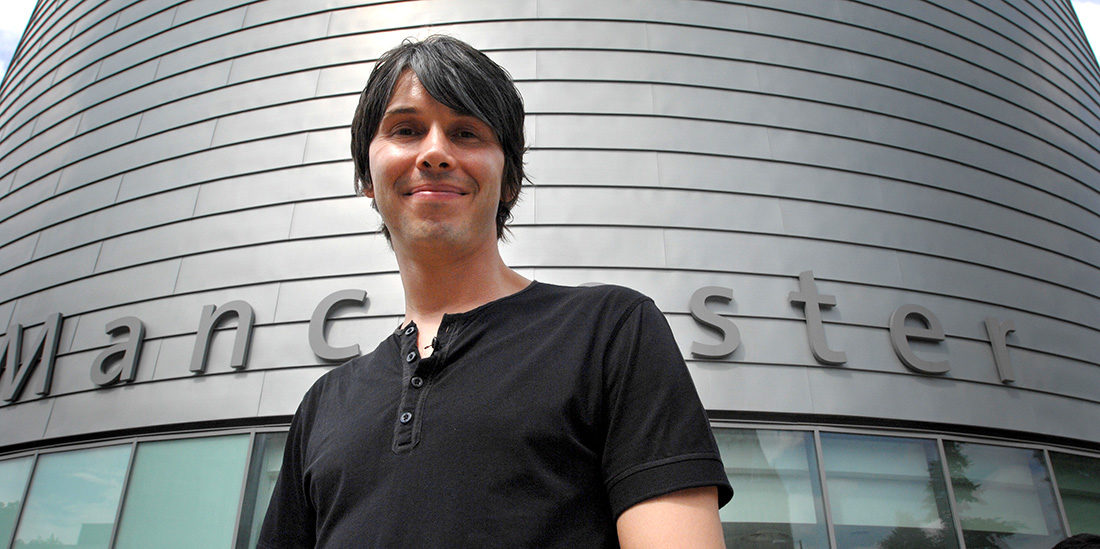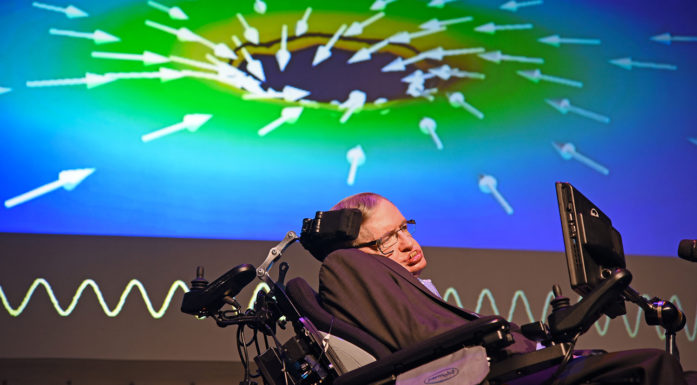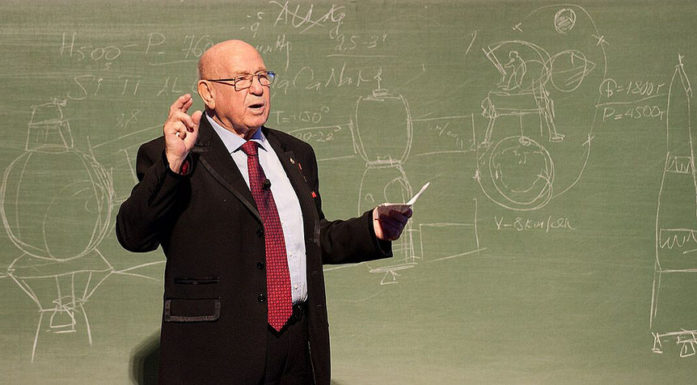Popularizing science the Brian Cox way
Many of the speakers at the Starmus Festival are superstars in their fields of expertise. But few have as many fans as Brian Cox, the researcher who also feels at home in popular culture.
Brian Cox wants lots of people to like science.
“Science is too important not to be a part of popular culture,” he has repeatedly said. “What is popular culture anyway, if not popular – as in ‘liked by many?'”

Brian Cox is part of the team that has worked with the Large Hadron Collider (LHC) at CERN in Switzerland. Photo: Maximilien Brice/Cern
His worldview places him at the heart of the Starmus goal of helping the broader public understand and appreciate science. It doesn’t hurt that talk show presenters introduce him as “the world’s cutest scientist.” “The man who made science sexy.” “The perfect balance of eye candy plus facts.”
The fact that he was a pop-artist in the 1980s is mentioned just as often as the fact that he is a professor, physicist and researcher at CERN, where he is part of the team working on the Large Hadron Collider (LHC) particle accelerator in Geneva. LHC is nothing less than the largest and most powerful machine on the planet, designed to allow scientists to study what happened in the moment after the Big Bang by sending particles towards each other at high speed to collide under controlled and observable conditions.
Downsides of celebrity
The Starmus Science Festival
- NTNU is hosting the world's most ambitious science festival – Starmus.
- The festival combines music, community engagement and science.
- The festival will feature: 11 Nobel Laureates, 10 astronauts, for a total of 47 science stars.
- Stephen Hawking, the world-renowned cosmologist, will give a presentation.
- Jeffrey Sachs, one of the world's most important and well known economists, will talk about how we can survive Trump, climate change and global crises.
- One of the most cited living sociologists, Anthony Giddens, will talk about "The digital revolution and the future of world society".
- Three moonwalkers will share their experiences from their historic Moon landing and talk about humankind's future in space.
- Director Oliver Stone (Natural Born Killers and Platoon) and talk show host Larry King will participate.
- Steve Vai, Nuno Bettencourt, Ane Brun, David Zambuka, Grace Potter, Devin Townsend, the Trondheim Soloists and the Trondheim Symphony Orchestra are among the performers.
The series started with Wonders of the Solar System in 2010, continued with Wonders of the Universe in 2011, and was followed by Wonders of Life in 2013.
Today, Brian Cox is world-renowned as a programme presenter, with the result that some people believe that’s who he is: a TV host who talks about science. The truth is that Brian Cox is a scientist who uses television to spread enthusiasm for his subject. And he has succeeded to the degree that sometimes it feels like too much of a good thing.
While Cox points out that it is positive and encouraging that a science programme host can be a top-level celebrity, he admits that celebrity status makes it a little tougher to do his research. Once his TV series were broadcast, he could barely leave the house without setting aside time to satisfy all the selfie and autograph seekers. These are people, for example, who became megafans after watching him build sand castles in a windblown desert landscape in order to explain the increase in entropy and the arrow of time, also known as the Second Law of Thermodynamics.
Recruitment through building interest
Someone who has a lot of fans also has to be able to tolerate critics. Among Cox’s peers, opinions differ on whether the entertainment value of his TV programmes comes at the expense of how research findings are presented.
“I’ve experienced very little criticism at the top level. There is an understanding that we need public interest to ensure funding and recruitment. Science needs support from children, parents and taxpayers,” Cox said during an interview with Professor Jim Al-Khalili at Surrey University.
Cox will undoubtedly be one of the presenters who attracts the attention of the younger set at Starmus. He thinks the ideal time for people to discover science in during transition from childhood to adolescence. He insists, however, that he was busy discovering girls and music at ages 15 and 16. When his little sister wanted to see the band Duran Duran in Leeds, Brian was sent along as a chaperone and big brother.
“I saw the band on stage and thought, ‘that’s what I want to do,’” Cox has said in interviews. That led to learning to play the keyboard and nerding out on electronics. The plan was to take a one-year break on the way to university. It took five years before Cox’s band split up following a brawl.
Then he worked as a sound engineer for the pop rock group D:Ream, and even stepped in when the band needed a keyboard player – allowing his fans to have fun listening to the recordings of a young Brian Cox on Top of the Pops. His pop career continued throughout his studies. Only after Cox completed his master’s degree did music take a back seat, replaced by a doctorate and an academic career.

NTNU’s own Edvard Moser has emphasized that Starmus presenters need to do more than own Edvard Moser has emphasized that Starmus presenters need to do more than just talk explain their research so that people understand it. The goal should be to make people think that science is really interesting. Photo: Geir Mogen/NTNU
The Brian Cox effect
Maybe it was his prior experience of performing on stage that explains why Cox the researcher came onto the scene early as a professional science communicator. He reached his first big audience with the TV series Wonders of the Universe. Before broadcasting the series, the BBC gave an optimistic forecast of 2 to 2.5 million viewers. It turned out that 6 million Britons chose to spend Sunday evenings with Brian Cox.
More than anyone else in recent times, he has proven to television companies that science programmes can attract large audiences. Other TV science programmes presented by academics in the UK have also gained a solid boost in the wake of Cox’s success. Universities experienced a 52 per cent increase in the number of applicants for physics studies from 2008 to 2012, a trend that’s been dubbed the “Brian Cox effect.”
NTNU’s own Edvard Moser has stressed to Starmus presenters that they shouldn’t explain their subject so the public just understands, but also so they find it interesting.
“Difficult things can be explained in an easy way. In a fun way!” says Moser. There is plenty of reason to believe that Brian Cox is going to manage this superbly.





